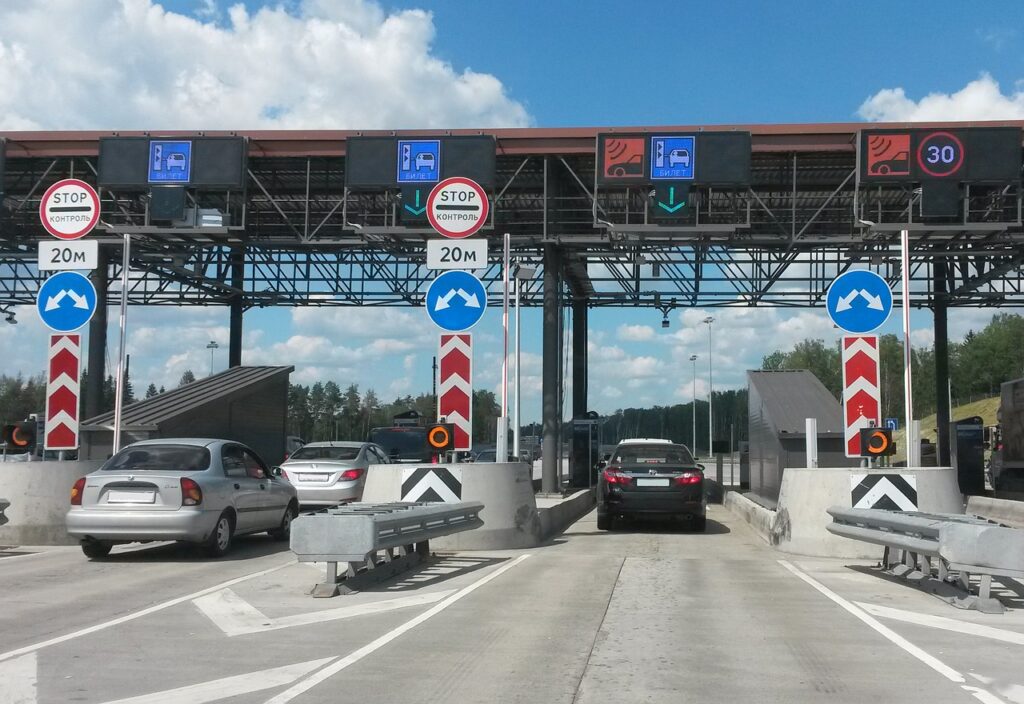We are happy to share with you an update on the Covid-19 measures that have been approved in Belgium. Our guest auhor Wout De Cock is a PhD candidate at the Vrije Universiteit Brussel and part-time teaching assistant at the Katholieke Universiteit Leuven.* Introduction In issue 1/2020 of the European State Aid Law Quarterly, we concluded that the European Commission […]
State Aid Law
Blog
State Aid Uncovered Blog
In Lexxion’s State Aid Uncovered blog, Prof. Phedon Nicolaides publishes weekly critical analyses of recent State aid judgments and decisions. Each post presents the key points of a court judgment or EU Commission decision, places it in the context of similar case law or practice, assesses the underlying reasoning and highlights any inconsistencies or contradictions.
Guest contributions from other State aid experts will also be published on the blog at irregular intervals to complement the content of the blog posts.
- TFEU ×
14. May 2020 |
Guest State Aid Blog
by Wout De Cock
5. May 2020 |
State Aid Uncovered
by Phedon Nicolaides
Legal and practical difficulties in the recovery of incompatible State aid do not constitute justifiable “absolute impossibility”. Temporary Framework On 1 May, the total number of State aid measures to combat covid-19 approved by the European Commission reached 102. Their legal basis was: Article 107(2)(b): 9; Article 107(3)(b): 86; Article 107(3)(c): 7 Introduction The 2020 Temporary Framework for State […]
27. April 2020 |
State Aid Uncovered
by Phedon Nicolaides
A company is in difficulty if, in practice, its accumulated net losses exceed 50% of its subscribed capital, regardless of whether the subscribed capital is formally written down. The classification of a company as being in difficulty is independent of the sector in which it operates and of whether a private investor would be willing to invest in it. Temporary […]
20. April 2020 |
State Aid Uncovered
by Phedon Nicolaides
The pricing of a guarantee must take into account not only the financial situation of the borrower but also the value of any collateral. Temporary Framework As of 17 April 2020, the European Commission authorised 61 State aid measures from 23 Member States and the UK to combat covid-19. Introduction State guarantees on loans make up the largest category […]
19. November 2019 |
State Aid Uncovered
by Phedon Nicolaides
Contractual obligation to provide compensation that does not exceed the loss of income is not State aid. Introduction When is a company entitled to compensation by the state? The easy answer is “when the state is liable for damage”. However, it may be possible for a company to claim compensation from the state when the state has assumed contractual obligations. […]
5. November 2019 |
State Aid Uncovered
by Phedon Nicolaides
The new owner of a company that received incompatible State aid may be liable to pay it back. Introduction Companies rarely escape from the obligation to repay incompatible State aid. Over the past decade or so, very few companies have successfully argued that they legitimately expected that the aid they received was compatible with the internal market. When a […]
4. September 2018 |
State Aid Uncovered
by Phedon Nicolaides
State aid does not have to be awarded on the basis of a competitive procedure, unless the relevant rules require it. Secondary legislation may allow Member States to make direct awards without a prior competitive procedure. Public procurement rules do not apply to awards between contracting authorities. Introduction Public procurement and State aid rules have the same basic […]
28. August 2018 |
State Aid Uncovered
by Phedon Nicolaides
Compensation for the provision of public services may not exceed the avoidable cost minus any forgone revenue from not having to provide those services. The VAT exemption for postal services is not State aid because it is laid down in the EU VAT directive and therefore cannot be attributed to Member States. Introduction This article reviews Commission decision on […]
3. July 2018 |
State Aid Uncovered
by Phedon Nicolaides
Block exemption of new financial instruments. Introduction The Commission has recently published a proposal for amendment of Council Regulation 2015/1588[1] which authorises the Commission to adopt block exemption regulations. The purpose of the Commission’s proposal is to expand Article 1 of Regulation 2015/1588. This Article lists the categories of aid that may be declared compatible with the internal market.The […]
25. June 2018 |
State Aid Uncovered
by Phedon Nicolaides
Damage from natural disasters can be remedied in the short-term through direct compensation or in the longer-term through investment subsidies to support new productive capacity. Introduction This article reviews a rather straightforward case which, however, is also quite unusual. It concerns a measure to remedy the effect of recent earthquakes in Italy. What makes it unusual is that […]
- TFEU ×
14. May 2020 |
Guest State Aid Blog
by Wout De Cock
We are happy to share with you an update on the Covid-19 measures that have been approved in Belgium. Our guest auhor Wout De Cock is a PhD candidate at the Vrije Universiteit Brussel and part-time teaching assistant at the Katholieke Universiteit Leuven.* Introduction In issue 1/2020 of the European State Aid Law Quarterly, we concluded that the European Commission […]
5. May 2020 |
State Aid Uncovered
by Phedon Nicolaides
Legal and practical difficulties in the recovery of incompatible State aid do not constitute justifiable “absolute impossibility”. Temporary Framework On 1 May, the total number of State aid measures to combat covid-19 approved by the European Commission reached 102. Their legal basis was: Article 107(2)(b): 9; Article 107(3)(b): 86; Article 107(3)(c): 7 Introduction The 2020 Temporary Framework for State […]
27. April 2020 |
State Aid Uncovered
by Phedon Nicolaides
A company is in difficulty if, in practice, its accumulated net losses exceed 50% of its subscribed capital, regardless of whether the subscribed capital is formally written down. The classification of a company as being in difficulty is independent of the sector in which it operates and of whether a private investor would be willing to invest in it. Temporary […]
20. April 2020 |
State Aid Uncovered
by Phedon Nicolaides
The pricing of a guarantee must take into account not only the financial situation of the borrower but also the value of any collateral. Temporary Framework As of 17 April 2020, the European Commission authorised 61 State aid measures from 23 Member States and the UK to combat covid-19. Introduction State guarantees on loans make up the largest category […]
19. November 2019 |
State Aid Uncovered
by Phedon Nicolaides
Contractual obligation to provide compensation that does not exceed the loss of income is not State aid. Introduction When is a company entitled to compensation by the state? The easy answer is “when the state is liable for damage”. However, it may be possible for a company to claim compensation from the state when the state has assumed contractual obligations. […]
5. November 2019 |
State Aid Uncovered
by Phedon Nicolaides
The new owner of a company that received incompatible State aid may be liable to pay it back. Introduction Companies rarely escape from the obligation to repay incompatible State aid. Over the past decade or so, very few companies have successfully argued that they legitimately expected that the aid they received was compatible with the internal market. When a […]
4. September 2018 |
State Aid Uncovered
by Phedon Nicolaides
State aid does not have to be awarded on the basis of a competitive procedure, unless the relevant rules require it. Secondary legislation may allow Member States to make direct awards without a prior competitive procedure. Public procurement rules do not apply to awards between contracting authorities. Introduction Public procurement and State aid rules have the same basic […]
28. August 2018 |
State Aid Uncovered
by Phedon Nicolaides
Compensation for the provision of public services may not exceed the avoidable cost minus any forgone revenue from not having to provide those services. The VAT exemption for postal services is not State aid because it is laid down in the EU VAT directive and therefore cannot be attributed to Member States. Introduction This article reviews Commission decision on […]
3. July 2018 |
State Aid Uncovered
by Phedon Nicolaides
Block exemption of new financial instruments. Introduction The Commission has recently published a proposal for amendment of Council Regulation 2015/1588[1] which authorises the Commission to adopt block exemption regulations. The purpose of the Commission’s proposal is to expand Article 1 of Regulation 2015/1588. This Article lists the categories of aid that may be declared compatible with the internal market.The […]
25. June 2018 |
State Aid Uncovered
by Phedon Nicolaides
Damage from natural disasters can be remedied in the short-term through direct compensation or in the longer-term through investment subsidies to support new productive capacity. Introduction This article reviews a rather straightforward case which, however, is also quite unusual. It concerns a measure to remedy the effect of recent earthquakes in Italy. What makes it unusual is that […]
- TFEU ×
14. May 2020 |
Guest State Aid Blog
by Wout De Cock
We are happy to share with you an update on the Covid-19 measures that have been approved in Belgium. Our guest auhor Wout De Cock is a PhD candidate at the Vrije Universiteit Brussel and part-time teaching assistant at the Katholieke Universiteit Leuven.* Introduction In issue 1/2020 of the European State Aid Law Quarterly, we concluded that the European Commission […]
5. May 2020 |
State Aid Uncovered
by Phedon Nicolaides
Legal and practical difficulties in the recovery of incompatible State aid do not constitute justifiable “absolute impossibility”. Temporary Framework On 1 May, the total number of State aid measures to combat covid-19 approved by the European Commission reached 102. Their legal basis was: Article 107(2)(b): 9; Article 107(3)(b): 86; Article 107(3)(c): 7 Introduction The 2020 Temporary Framework for State […]
27. April 2020 |
State Aid Uncovered
by Phedon Nicolaides
A company is in difficulty if, in practice, its accumulated net losses exceed 50% of its subscribed capital, regardless of whether the subscribed capital is formally written down. The classification of a company as being in difficulty is independent of the sector in which it operates and of whether a private investor would be willing to invest in it. Temporary […]
20. April 2020 |
State Aid Uncovered
by Phedon Nicolaides
The pricing of a guarantee must take into account not only the financial situation of the borrower but also the value of any collateral. Temporary Framework As of 17 April 2020, the European Commission authorised 61 State aid measures from 23 Member States and the UK to combat covid-19. Introduction State guarantees on loans make up the largest category […]
19. November 2019 |
State Aid Uncovered
by Phedon Nicolaides
Contractual obligation to provide compensation that does not exceed the loss of income is not State aid. Introduction When is a company entitled to compensation by the state? The easy answer is “when the state is liable for damage”. However, it may be possible for a company to claim compensation from the state when the state has assumed contractual obligations. […]
5. November 2019 |
State Aid Uncovered
by Phedon Nicolaides
The new owner of a company that received incompatible State aid may be liable to pay it back. Introduction Companies rarely escape from the obligation to repay incompatible State aid. Over the past decade or so, very few companies have successfully argued that they legitimately expected that the aid they received was compatible with the internal market. When a […]
4. September 2018 |
State Aid Uncovered
by Phedon Nicolaides
State aid does not have to be awarded on the basis of a competitive procedure, unless the relevant rules require it. Secondary legislation may allow Member States to make direct awards without a prior competitive procedure. Public procurement rules do not apply to awards between contracting authorities. Introduction Public procurement and State aid rules have the same basic […]
28. August 2018 |
State Aid Uncovered
by Phedon Nicolaides
Compensation for the provision of public services may not exceed the avoidable cost minus any forgone revenue from not having to provide those services. The VAT exemption for postal services is not State aid because it is laid down in the EU VAT directive and therefore cannot be attributed to Member States. Introduction This article reviews Commission decision on […]
3. July 2018 |
State Aid Uncovered
by Phedon Nicolaides
Block exemption of new financial instruments. Introduction The Commission has recently published a proposal for amendment of Council Regulation 2015/1588[1] which authorises the Commission to adopt block exemption regulations. The purpose of the Commission’s proposal is to expand Article 1 of Regulation 2015/1588. This Article lists the categories of aid that may be declared compatible with the internal market.The […]
25. June 2018 |
State Aid Uncovered
by Phedon Nicolaides
Damage from natural disasters can be remedied in the short-term through direct compensation or in the longer-term through investment subsidies to support new productive capacity. Introduction This article reviews a rather straightforward case which, however, is also quite unusual. It concerns a measure to remedy the effect of recent earthquakes in Italy. What makes it unusual is that […]












